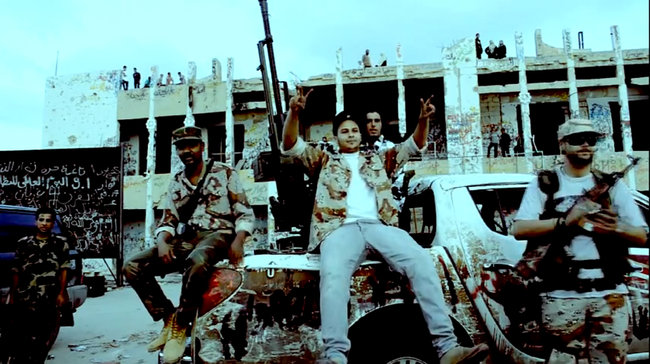- Thread starter
- #441
Syria refugees find sanctuary in Libya

Syria refugees find sanctuary in Libya - latimes.com

Reporting from Benghazi, Libya Even as it recovers from its recent civil war, Libya is fast becoming a place of sanctuary for thousands of refugees fleeing the bloodshed in Syria.
Buses from Damascus, crammed with Syrian families, are arriving daily in the eastern city of Benghazi, the cradle of the effort to oust the late Libyan leader Moammar Kadafi.
"Up to 4,000 Syrian families have sought refuge in Libya in the last weeks, and the numbers are increasing every day," said Mohammed Jammal, a Syrian community leader in the city. "The buses arrive full and go back empty. There used to be two a week, but now there are two a day."
Crammed full with families and young men, the buses pull into the station at all times of the night after a grueling 41/2-day trip, crossing first into Jordan, then across the Suez Canal, through Egypt and down the long road to Benghazi.
They arrive in a city where uncollected trash still lines the streets, schools have only recently reopened, and residents are just beginning to find work. Slogans of the Libyan revolution share space on walls with posters of loved ones lost in the fighting. Radio advertisements are interspersed with warnings to civilians not to touch unexploded ordnance, including grenades, half-shattered rockets and tank shells that still lie scattered around the city.
A country that is only now beginning to pick itself up may seem an unlikely destination for families fleeing violence in their own nation. But some of the Syrian families pouring into Benghazi say that, in many ways, Libya is one of the only countries in which they could feel safe.
"Libya is free now. There is no secret police to watch you move," said a refugee who, like others interviewed, was too fearful to give his name. "They had their revolution, and now they will help us have ours."
The nascent Libyan government, which in October was the first to formally recognize the Syrian National Council, the country's most prominent opposition bloc, has said it will take in the refugees.
Many of the families escaping Syria are opponents of the government of President Bashar Assad. They fear they could be arrested in Lebanon, where the governing coalition is friendly to the Syrian regime, or in Turkey or Jordan by Syrian intelligence officials who have infiltrated those countries.
Rows of mobile homes are being readied for them in a camp that already houses 120,000 people displaced by the Libyan war.
The camp opened during the early days of that conflict as a collection of quickly erected tents to house thousands of migrants as they waited to flee the country. They included many Africans who became vulnerable to attack when rumors spread that Kadafi was hiring African mercenaries. Those from countries so insecure it is dangerous for them to return home remained in the camp as it grew into a large sprawl of mobile homes surrounded by a high wall. They have been joined by Libyans affected by the rancor generated during the war.
"We have 35 Syrian families being sent here," said Ibrahim Asfour, who manages the camp for the Libyan Red Crescent Society. "And we expect many more."
Syria refugees find sanctuary in Libya - latimes.com









